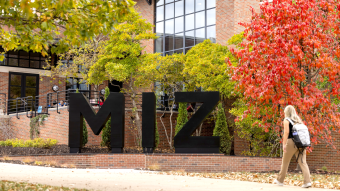July 23, 2021
Transcript
Brian Consiglio: Among those that have already been infected with COVID-19, there are often questions about the possibility of becoming reinfected. And in a recent University of Missouri study researchers found that for unvaccinated people who have battled severe COVID-19 infections, reinfection is rare but certainly possible.
MU School of Medicine researcher Adnan Qureshi collaborated with researchers from the MU Institute for Data Science and Informatics to look at COVID-19 reinfection data from 62 U.S. health care facilities. Qureshi says that his research suggests COVID-19 isn’t like other viral infections.
Qureshi: “With COVID-19 or SARS-COV-2 virus infection, there's something unique that the immune response doesn't seem to be perfect.”
Consiglio: The study found that out of the total 9,000 patients less than 1% of the patients studied were infected a second time. Chi-Ren Shyu, the director of the MU Institute for Data Science & informatics, says that these findings will help improve treatments for people with COVID-19.
Qureshi: “It's a kind of large-scale data set to look at who really got reinfected, and then what type of reinfection patterns, so we can provide better treatment, better care for those patients.”
Consiglio: For more on this research visit MUHealth.org
I’m Brian Consiglio with a Spotlight on Mizzou.



